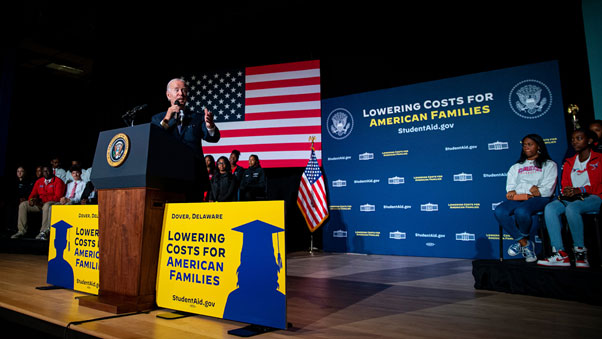
A pivotal aspect of the Biden administration's initiative concerning student debt relief has encountered a temporary halt courtesy of a federal appeals court decision. The New Orleans-based 5th U.S. Circuit Court of Appeals has responded to a plea from a trade association representing for-profit colleges, leading to suspending a rule designed to expedite loan forgiveness for individuals who fell victim to deceptive practices by educational institutions. Pending an appeal scheduled for November, the court's ruling effectively postpones the implementation of the rule.
Amidst ongoing legal scrutiny, the Education Department remains committed to addressing deceitful practices within education. A department spokesperson reiterated their dedication to holding predatory educational institutions accountable, affording relief to borrowers who have fallen prey to deceptive practices or institutional closures, and ensuring that establishments involved in deceptive schemes are held responsible.
Historically, instances of debt forgiveness through this program have predominantly benefited students who attended for-profit colleges like Corinthian Colleges and ITT Technical Institute. The amendments to the rule were designed to bolster the program's effectiveness in identifying and mitigating fraud and misrepresentation in the higher education sector. Career Colleges and Schools of Texas (CCST) contested the new rule on the grounds of illegality and unconstitutionality. The trade group asserted that the rule exceeded its authority, accusing it of seeking substantial loan forgiveness for borrowers while transferring the associated financial liability onto higher education institutions.
The composition of the three-judge panel responsible for this recent decision is noteworthy. All three judges—Edith Jones, Kyle Duncan, and Cory Wilson—were appointed by Republican presidents. The political backdrop could potentially shape the legal trajectory of the case, as their judicial perspectives might influence the outcome of the November appeal.





